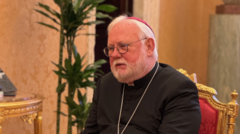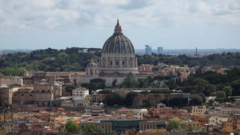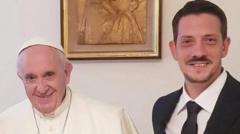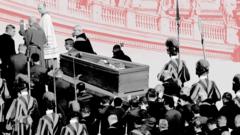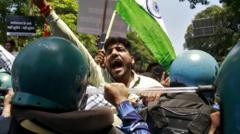Though Israel expressed condolences for Pope Francis’s death, its delayed and low-key response, including a low-level funeral representation, reveals lingering dissatisfaction with his comments on Gaza. This contrasts sharply with the more substantial tributes from other world leaders.
Israel's Mixed Signals on Pope Francis’s Death Amid Gaza Tensions

Israel's Mixed Signals on Pope Francis’s Death Amid Gaza Tensions
The Israeli government's subdued response to the passing of Pope Francis reflects underlying tensions, particularly regarding the Gaza conflict.
Israeli Prime Minister Benjamin Netanyahu's office has extended condolences for Pope Francis four days after his death, signaling a complicated relationship with the Catholic Church amid ongoing tensions regarding Gaza. A previous, warmer message shared on social media was promptly deleted, stirring controversy and media scrutiny.
The official condolence from the Prime Minister's office was succinct, stating, "The State of Israel expresses its deepest condolences to the Catholic Church and the Catholic community worldwide at the passing of Pope Francis. May he rest in peace." This lifeless response contrasts with an earlier, more heartfelt tweet that included a photo of the Pope at the Western Wall but was quickly removed without any explanation.
Israeli media reports indicated that the emotional tone had been rescinded after officials declared it had been posted "in error." While the Israeli ambassador to the Vatican has been dispatched to attend the Pope's funeral, this attendance is a significant downgrade compared to the representation at previous papal funerals, such as that of John Paul II in 2005, where Israel sent high-ranking officials, including the president and foreign minister.
Israeli President Isaac Herzog expressed admiration for Pope Francis shortly after his death but, surprisingly, announced that he would not attend the funeral. This absence may tie into the funeral's scheduling on Shabbat, the Jewish day of rest. Critically, the Israeli government’s muted actions appear to stem from Pope Francis's previous remarks on the Gaza conflict, including his assertion last November questioning whether Israel’s military actions could be regarded as genocide—a label vehemently rejected by Israel.
Pope Francis had previously characterized the humanitarian environment in Gaza as "shameful" and consistently addressed the suffering of both Palestinians and Israelis, emphasizing a desire for peace and understanding. Following his passing, many Palestinians expressed a sense of mourning, highlighting his compassionate outreach during the war in Gaza, where he maintained contact with Christians in distress.
Contrasting Israel’s stance, the Palestinian Authority is sending its Prime Minister to the Pope's funeral, reinforcing the notion that Pope Francis was viewed favorably among Palestinians. As these dynamics unfold, it is evident that Israel's official posture may be shaped by perceptions of favoritism towards Palestine, complicating an already sensitive relationship with the Vatican that could be underscored during the upcoming funeral ceremonies.

